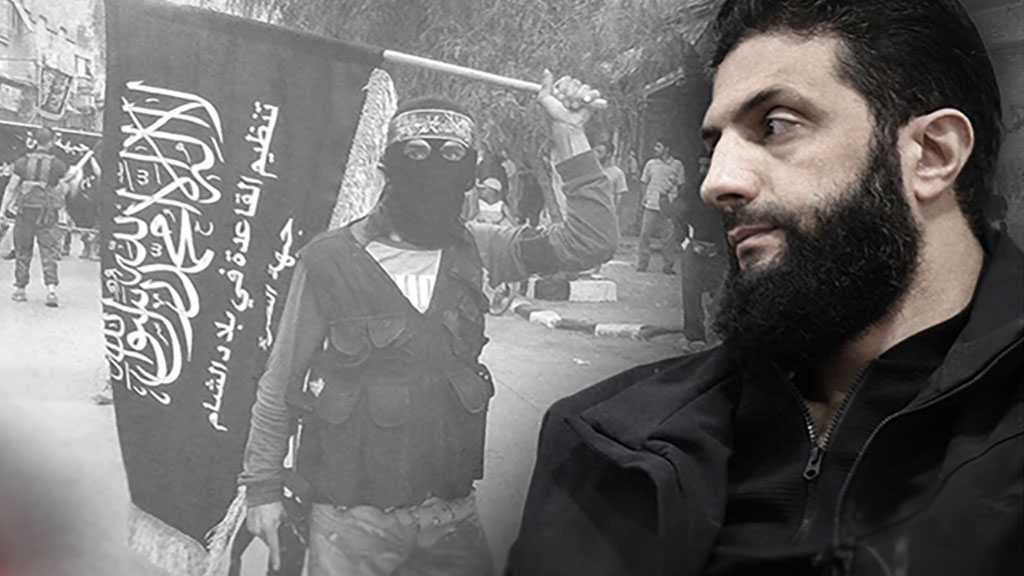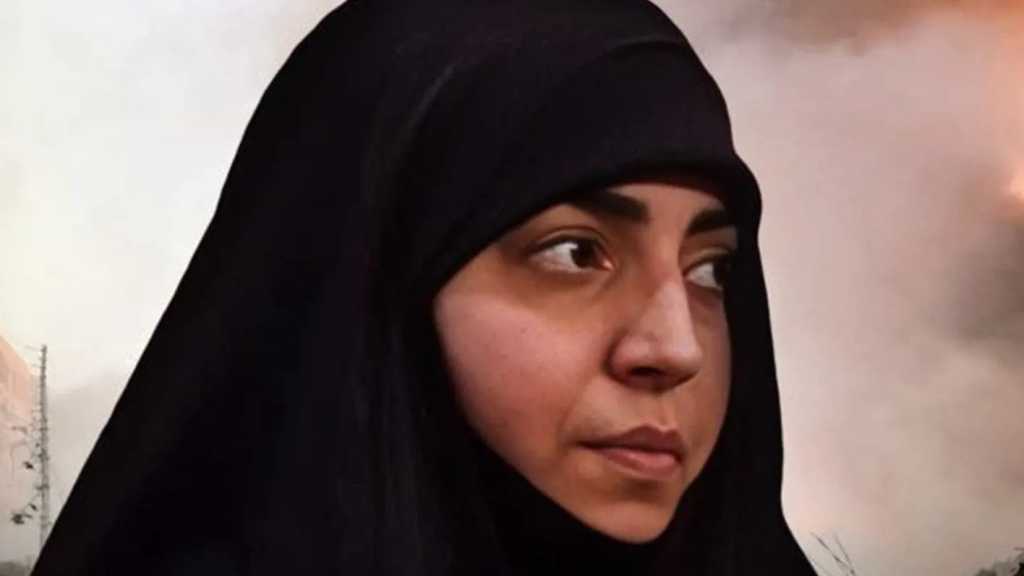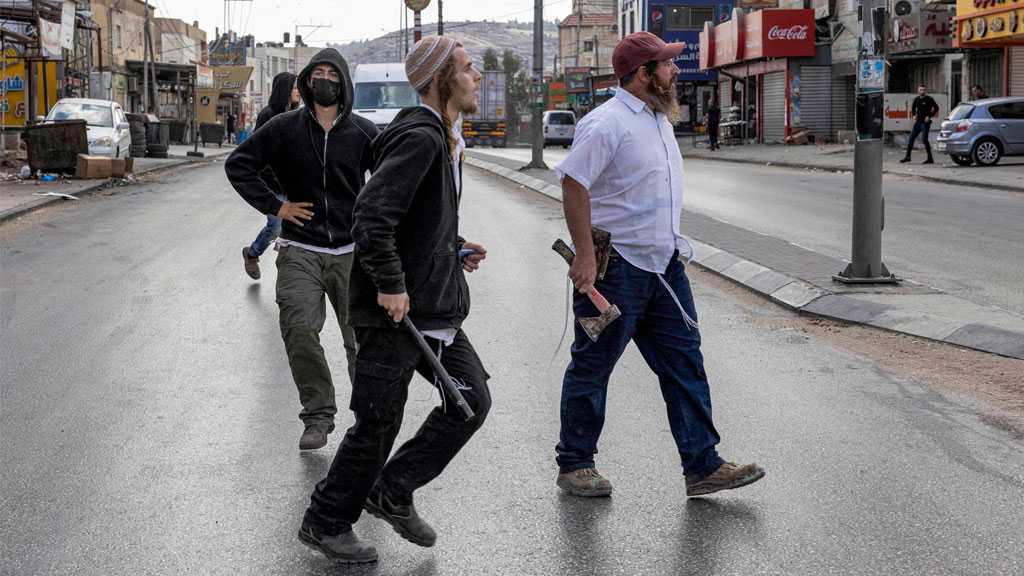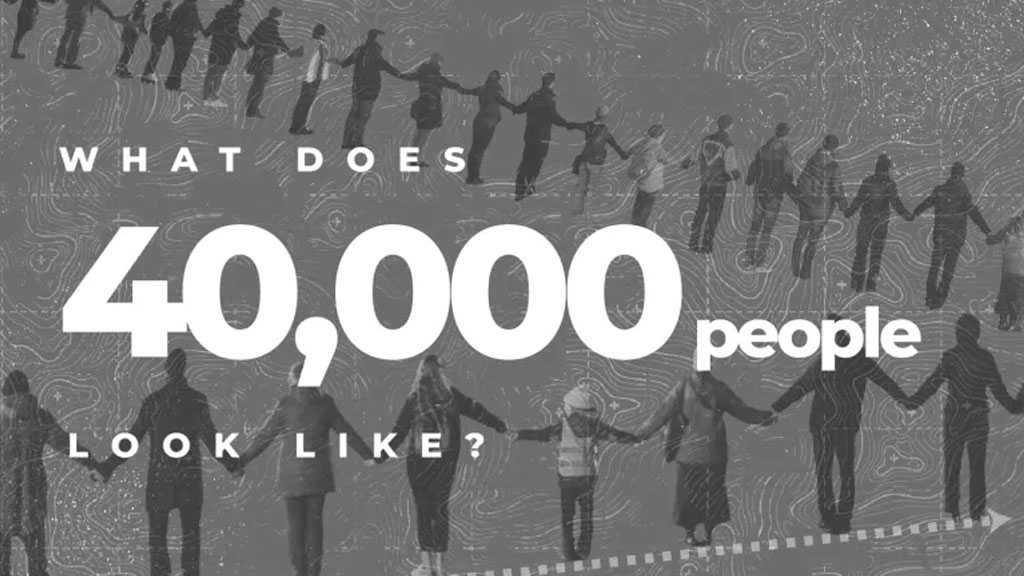No Water, Food, Health Care, Toilet: Desperation Deepens in Gaza’s Camps
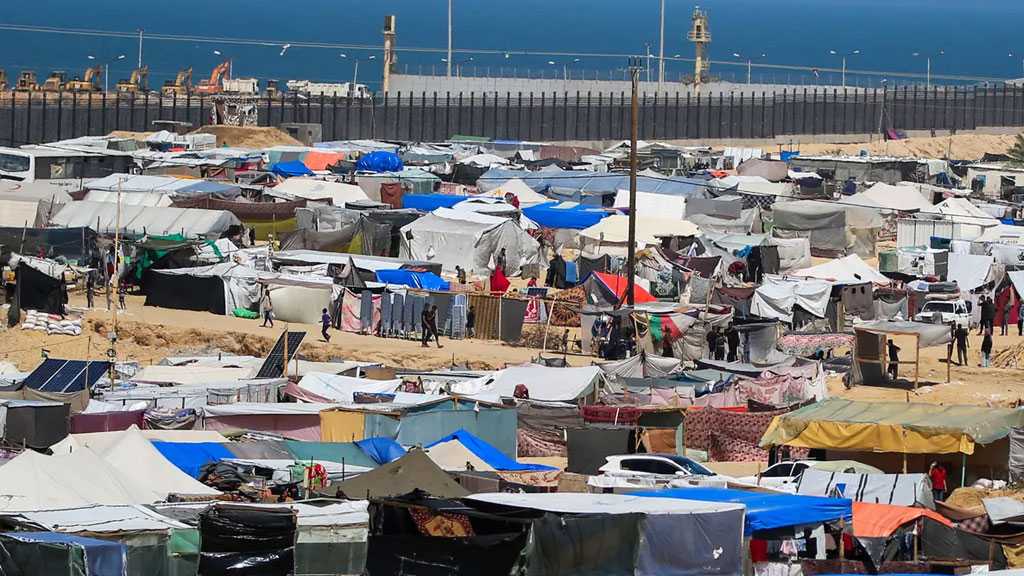
By Malak A. Tantesh and Jason Burke, The Guardian
Soaring above the rows of tents 10 deep on the dunes stretching back from the Mediterranean Sea is a reminder of better times in Gaza: a Ferris wheel.
Now, the cafes, paths and miniature train of the Asda’a amusement park are obscured by hundreds of shelters, put up by some of the half a million newly displaced people who have made their way to this sandy strip of coastline near the city of Khan Younis to escape fighting in the north and south of the territory.
Massa Al-Arbeed, 10, had only just arrived from Gaza City, with her brother and mother.
“We have had to leave a lot behind because this is perhaps the sixth time we have moved,” Al-Arbeed told the Guardian. “So I’m just sitting here.
“There are no games or dolls to play with, or even a house to take shelter in, and because we move a lot, I’ve lost touch with all my friends and now I don’t know anything about them.”
Always anxious, sometimes injured or sick, frequently hungry and thirsty, most of the inhabitants of the tented city that has risen among the dunes and scrubby fields are seeking shelter from the relentless “Israeli” offensive that has reached Rafah, the southernmost city in Gaza.
Another hundred thousand have moved from northern Gaza, where a series of “Israeli” operations targeting Hamas fighters who have moved back into parts cleared earlier in the war began at the weekend. All are complying with instructions broadcast through leaflets, phone calls and social media to evacuate dozens of numbered neighborhoods.
Though “Israeli” officials have claimed “international humanitarian aid will be provided as needed” for the vast numbers of displaced, the reality is very different.
Many have to walk long distances to get any water at all, and cannot afford sufficient food. One kg of sugar costs 12 USD [£9.50], about six times more than before “Israel” launched its offensive on Rafah a week ago. The price of salt and coffee has increased 10-fold, though that of flour has remained stable. One problem is a lack of money. Banks are shut, and few have any reserves left.
Sabreen, a 28-year-old mother of three, has been displaced four times after first leaving her home in the northern town of Beit Lahia at the beginning of the conflict, after the surprise Hamas attack in “Israel” that killed about 1,200... She arrived on the coast with five other families who had pooled resources to hire a truck, which cost 10 times the usual price.
“This is not the life of any normal human being. There is nothing: no water, no food, no health care, not even a toilet. My children ask me if they could just have potatoes but we have no money now. All we have is canned food distributed [by the United Nations],” she said.
“My children have already had flu, and fevers, and hepatitis. They are weak now, and there aren’t enough antibiotics, so I’m very worried.”
A few miles south of the Asda’a amusement camp is Al-Mawasi, once a small coastal town. The drive there now takes two hours on a road choked by cars, trucks, pony carts and even bicycles transporting the displaced.
Aid workers at Al-Mawasi, which has been a refuge for months to those fleeing the fighting, described “horrific and dehumanizing” conditions, with limited food, filthy and scarce water, overwhelmed healthcare facilities and almost no sanitation.
Dr James Smith, a British emergency medic working in southern Gaza, said: “The smell of sewage in the most congested IDP camps is pungent. There is solid waste piled up by the side of the road because there is not enough staff to man the few waste disposal vehicles. People are becoming sicker and sicker.”
Another said the coast was “totally jam packed, with block after block of tents and only narrow gaps between them”.
“There is no infrastructure inside the camps and very limited new supplies getting in of course,” he said.
Many of those fleeing Rafah are leaving their homes for the first time. A UN official in the city described an orderly flight with “people tidying up after themselves”.
Raafat Farhat, a 64-year-old retired teacher, fled to Al-Mawasi three days ago, where she slept in the open until her family managed to build a shelter.
“We have never imagined that we will end up living like this. Now, a life with electricity, water, food and shelter seems like a dream,” she said.
More than 35,000 Palestinians – many of them women and children – have died since the “Israeli” offensive began in the aftermath of the October attacks, according to Palestinian officials in Gaza.
Farhat had lost more than 30 relatives, of whom “most are still under the rubble”.
The majority of those who have sought shelter on Gaza’s southern coastline, young and old alike, say their greatest desire now is for a life without fear.
“I am frightened that we will leave our country permanently, and I am also afraid of some bombing of a nearby place and having stones and shrapnel rain down on us. Here, we are exposed to danger and death at any moment, and so I am afraid of losing one of my children and my family,” she said.
Sabreen said she was now “afraid of everything”.
“I am afraid that my close ones will be killed, of the sound of the bombing, and that we will never return to our homes,” she told the Guardian.
Ten-year-old Massa Al-Arbeed said she was afraid that her family would “be bombed or something will happen to us” and also “afraid of losing my injured father or uncles who are still in Gaza City”.
“I hope to go back to Gaza City and see my father and uncles and return to build our house to make it more beautiful than the one which was destroyed, and that we will all be there together except for those who died,” she said.
“Also, I want to become a doctor to treat the sick and the injured, like my dad, and if I do not become a doctor, I want to be a math teacher because I like math very much.”
Comments
